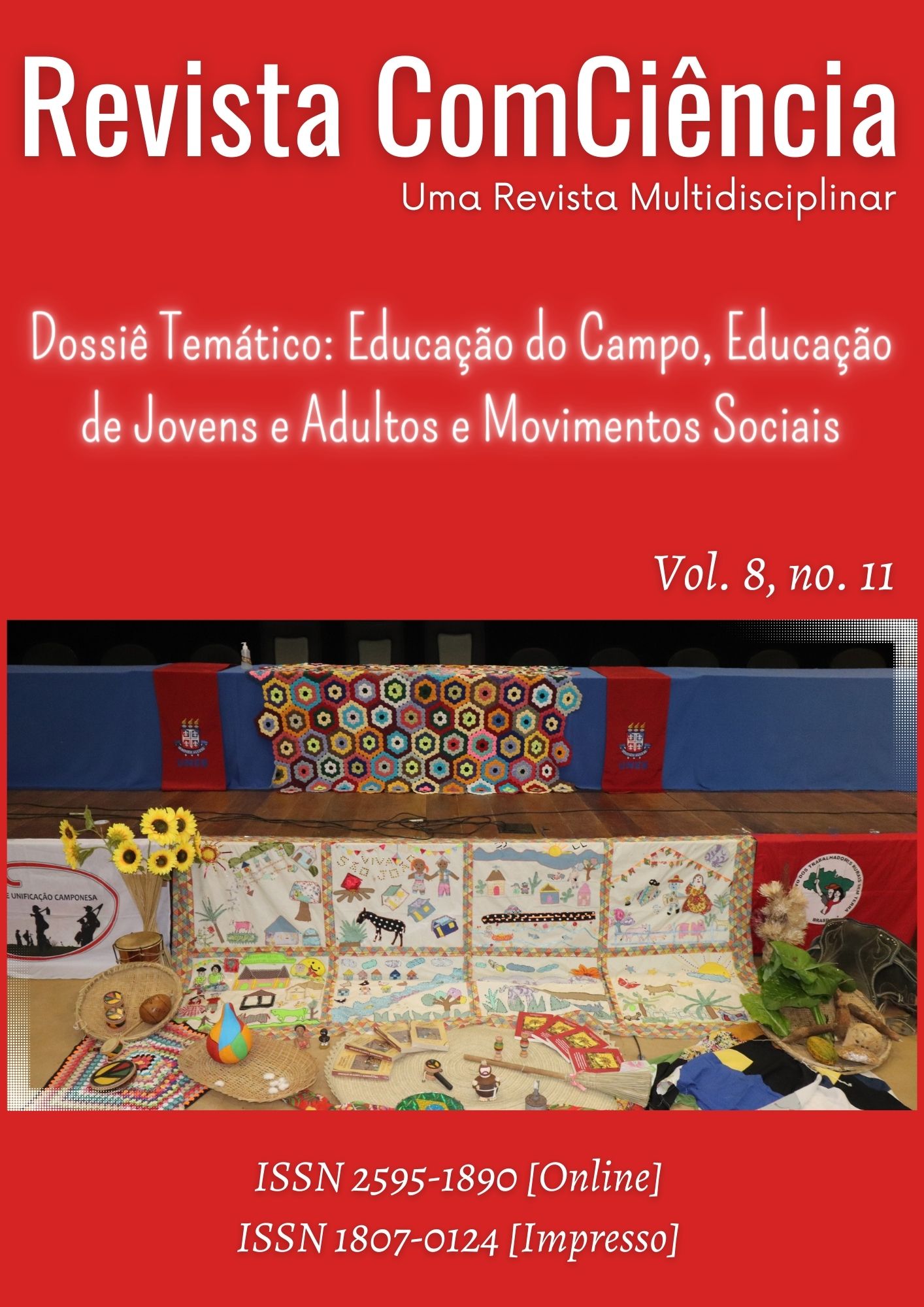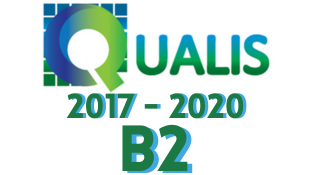Social organizations in Guanambi-BA: contributions to the strengthening of the countryside people
DOI:
https://doi.org/10.36112/issn2595-1890.v8.i11.p202-218Keywords:
Field Education, Social Organizations, Public Policies, Agroecology, Countryside peopleAbstract
The objective of this research is to understand how Social Organizations contribute to the strengthening of rural people in the municipality of Guanambi - Bahia, seeking to identify their collaborations and difficulties faced in this scenario. In order to achieve this objective, a qualitative methodological approach of the exploratory field type was used, which sought to know, list and discuss the contributions and challenges that Social Organizations have been exerting with rural people. A “snowboll” sample was also used, which in the face of the semi-structured interviews, it was noticeable that it would be adding to the work. The research was carried out in the municipality of Guanambi – Bahia, using two Social Organizations that work in favor of rural people, such as: Centro de Agroecologia no Semiárido – CASA; Union of Agricultural Workers and Rural Farmers The instruments used during the research were the semi-structured interviews as stated above, the field diary, an important note-taking tool and the photographs, which were taken by the researcher. The theoretical contribution is based on areas of Rural Education, Agroecology and Public Policies, important aspects that in the course of the research will be evident and discussed by the research subjects and theorists who approach this theme. Therefore, in view of the interviews with the subjects, the analysis of the data collected and the entire methodological course, it was concluded that there are numerous actions, programs and rights that Social Organizations have been conquering and working together with rural people, and that policies Public services are the greatest tools in guaranteeing and achieving such feats.
Downloads
References
BRASIL. Lei N° 11.326, de 24 de julho de 2006. Estabelece as diretrizes para a formulação da Política Nacional da Agricultura Familiar e Empreendimentos Familiares Rurais. Brasília: Presidência da República, [2006]. Disponível em: http://www.planalto.gov.br/ccivil_03/_ato2004-2006/2006/lei/l11326.htm. Acesso em: 01 nov. 2022.
ALTAFIN, Iara. Reflexões sobre o conceito de agricultura familiar. Brasília: CDS/UnB, p. 1-23, 2007.
ALTIERI, Miguel A. Agroecologia: a dinâmica produtiva da agricultura sustentável. 1998.
ASA. Ações – Cisternas nas Escolas. Asabrasil.org.br. Disponível em: <> https://www.asabrasil.org.br/acoes/cisternas-nas-escolas#categoria_img. Acesso em: 01 dez 2021.
ASA. Ações – P1+2. Asabrasil.org.br. Disponível em: <> https://www.asabrasil.org.br/acoes/p1-2. Acesso em: 01 dez 2021.
ASA. Ações – P1MC. Asabrasil.org.br. Disponível em: <> https://www.asabrasil.or.br/acoes/p1mc. Acesso em: 01 dez 2021.
BOMBARDI, Larissa Mies. A intoxicação por agrotóxicos no Brasil e a violação dos direitos humanos. Direitos humanos no Brasil, p. 71-82, 2011.
CALDART, R. S.; PEREIRA, I. B.; ALENTEJANO, P.; FRIGOTTO, G. Dicionário da Educação do Campo. São Paulo: Expressão Popular, 2012.
CALDART, R. S.; Sobre Educação do Campo. In: III Seminário do Programa Nacional de Educação na Reforma Agrária (PRONERA), Luziânia, GO, 2007.
CASA. Centro de Agroecologia no Semiárido (CASA). Casasemiárido.org.br. Disponível em: <> http://www.casasemiarido.org.br/casa-centro-de-agroecologia-no-semiarido/. Acesso em: 21 nov 2021.
GIL, Antônio Carlos. Como Elaborar Projetos de Pesquisa. 4°. Ed. – São Paulo: Editora Atlas, 2002.
GOHN, Maria da Gloria. Educação Não-Formal e o Educador Social. 1.ed. São Paulo: Cortez Editora, 2013.
GONSALVES, Elisa Pereira. Conversas sobre: Iniciação à Pesquisa Científica. – Campinas, São Paulo: Editora Alínea, 2001.
IBGE. Instituto Brasileiro de Geografia e Estática (IBGE). Ibge.gov.br. Disponível em: <> https://www.ibge.gov.br/cidades-e-estados/ba/guanambi.html. Acesso em: 10 nov 2021.
IBGE. Instituto Brasileiro de Geografia e Estática (IBGE). Ibge.gov.br. Disponível em: <> https://www.ibge.gov.br/cidades-e-estados/ba/caetite.html. Acesso em: 22 nov 2021.
LAMARCHE, Hughes. A agricultura familiar: Comparação internacional. Uma realidade multiforme. Tradução: Angela Maria Naoko Tijiwa. Campinas, São Paulo: Editora da Universidade Estadual de Campinas UNICAMP.
MOLINA, Mônica Castagna. A educação do campo e o enfrentamento das tendências das atuais políticas públicas. Educação em Perspectiva, v. 6, n. 2, 2015.
NEVES, Delma Pessanha. Agricultura Familiar. In. CALDART et al. Dicionário da Educação do Campo. Rio de Janeiro, São Paulo: Expressão Popular. 2012. p.32-40
SCHNEIDER, Sergio; CASSOL, Abel. A agricultura familiar no Brasil. Porto Alegre, Relatório de pesquisa. FIDA/RIMISP, 2013.
SOUSA, Romier da Paixão. Agroecologia e educação do campo: desafios da institucionalização no Brasil. Educação & Sociedade, v. 38, p. 631-648, 2017.
VINUTO, J. A amostragem em bola de neve na pesquisa qualitativa: um debate em aberto. Temáticas [Internet]. 2014, 2021 Nov 2022 (44): 203-20.
WANDERLEY, Maria de Nazareth Baudel. Raízes históricas do campesinato brasileiro. XX encontro anual da ANPOCS. GT 17. Processos sociais agrários. Caxambu–MG. Outubro, 1996.
Downloads
Published
How to Cite
Issue
Section
License
Copyright (c) 2023 Revista ComCiência, uma Revista multidisciplinar

This work is licensed under a Creative Commons Attribution-ShareAlike 4.0 International License.





